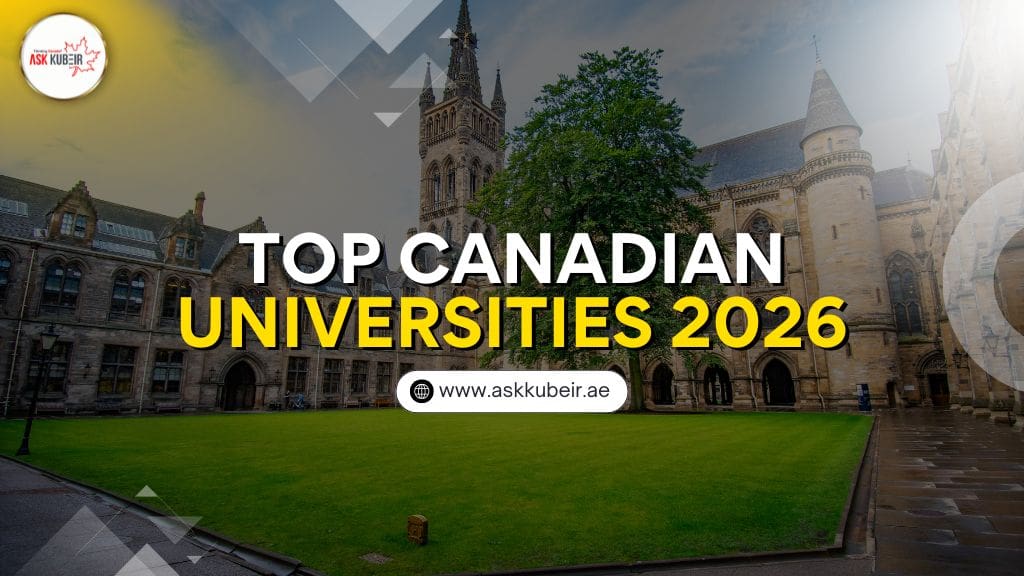
If you’re planning to study in Canada, it helps to know which universities are considered the best. The 2026 QS World University Rankings have just been released, and four Canadian universities are now in the top 100 worldwide. This ranking is one of the most trusted sources when comparing universities globally.
McGill University is Now Canada’s Highest-Ranked University
For the first time in years, McGill University in Montreal has taken the top spot in Canada, pushing the University of Toronto to second place. McGill is now ranked 27th in the world, climbing two spots from last year. This university scored especially well in areas like academic reputation, job outcomes, sustainability, and employer reputation.
University of Toronto Holds Strong at Second Place
Although McGill took the lead this year, the University of Toronto is still a global leader, ranking 29th. It has been Canada’s top-ranked university for several years and consistently stays in the QS global top 30. It scored 100 points in academic reputation and is the #1 university globally for sustainability.
University of British Columbia Still Among the Best
The University of British Columbia (UBC) comes in third among Canadian institutions, with a global rank of 40. It has a strong global reputation, especially for sustainability, international collaboration, and academic excellence.
University of Alberta Enters the Top 100
The University of Alberta in Edmonton is now ranked 94th, its best position since 2018. The university has improved in many areas, especially for international faculty, research partnerships, and sustainability.
Here’s a quick look at how the top Canadian universities ranked globally in 2026:
| University | QS 2026 Global Rank |
|---|---|
| McGill University | 27 |
| University of Toronto | 29 |
| University of British Columbia | 40 |
| University of Alberta | =94 |
How Other Canadian Universities Ranked
Below are the rankings for several other well-known Canadian universities:
| University | Province | QS 2026 Rank |
|---|---|---|
| University of Waterloo | Ontario | =119 |
| Western University | Ontario | 151 |
| Université de Montréal | Quebec | 168 |
| McMaster University | Ontario | =173 |
| Queen’s University | Ontario | 191 |
| University of Calgary | Alberta | 211 |
| University of Ottawa | Ontario | =219 |
| Dalhousie University | Nova Scotia | 283 |
| Simon Fraser University | British Columbia | =308 |
| York University | Ontario | 333 |
| University of Victoria | British Columbia | =358 |
| University of Saskatchewan | Saskatchewan | 378 |
| Concordia University | Quebec | =465 |
Planning to Study in Canada? Here’s What You Need to Know
If you’re an international student thinking of studying in Canada, you must first choose a Designated Learning Institution (DLI). These are the only schools in Canada that can accept international students. Once accepted, you’ll get a Letter of Acceptance, which is required to apply for your study permit.
How much money do you need?
Besides tuition and travel, you’ll need to show that you can support yourself financially while studying. For 2025, the minimum required funds (if studying outside Quebec) are:
| Number of family members (including applicant) | Funds required (in CAD) |
|---|---|
| 1 | $20,635 |
| 2 | $25,690 |
| 3 | $31,583 |
| 4 | $38,346 |
| 5 | $43,492 |
| 6 | $49,051 |
| 7 | $54,611 |
| For each additional family member above 7 | Add $5,559 |
What documents are needed to apply?
To apply for a Canadian study permit, you must submit:
- A Letter of Acceptance from a DLI
- Proof of financial support
- A Provincial Attestation Letter (PAL) or Territorial Attestation Letter (TAL) (depending on the province)
- In some cases, biometrics, medical exams, or police certificates
After approval, you will be issued a Temporary Resident Visa or eTA (Electronic Travel Authorization).
Work After Graduation with a PGWP
If you finish your studies at an eligible DLI, you may qualify for a Post-Graduation Work Permit (PGWP). This allows you to work for any employer in Canada and helps you gain experience that could lead to permanent residency, especially under the Canadian Experience Class stream.
The PGWP is typically valid for the same length as your study program (up to 3 years). However, it can only be issued once in your lifetime. Not all programs and DLIs are eligible, so it’s important to check before enrolling.
What Is the QS World University Ranking?
The QS World University Rankings are published by global education experts and are trusted by students and universities worldwide. Over 1,500 institutions were assessed for 2026.
The rankings are based on:
- Academic reputation (30%)
- Employer reputation (15%)
- Faculty-student ratio (10%)
- Citations per faculty (20%)
- International faculty and student ratio (5% each)
- Employment outcomes (5%)
- International research network (5%)
- Sustainability (5%)

Which is the best university in Canada in 2026?
According to the QS rankings, McGill University is the top Canadian university in 2026, ranked 27th worldwide.
Is the University of Toronto still among the top?
Yes, the University of Toronto is ranked 29th globally, just two spots behind McGill.
Do I need a lot of money to study in Canada?
You need to show you can support yourself during your studies. For one person, that’s at least $20,635 CAD, excluding tuition and travel costs.
What is a DLI?
A Designated Learning Institution is a school approved by the Canadian government to host international students. You must apply to a DLI to get a valid study permit.
Can I work after I graduate in Canada?
Yes. If your school and program qualify, you can get a Post-Graduation Work Permit (PGWP) and work in Canada after completing your studies.
Do QS rankings really matter?
QS rankings are widely respected around the world. They help students choose the right university by comparing academic strength, global reputation, and job outcomes.

📞 Call us: 04 260 7837
📲 WhatsApp: wa.me/971529693030
🌐 Website: www.askkubeir.ae
📍 Office No. 45, 9th Floor, Conrad Tower, WTC, Dubai





